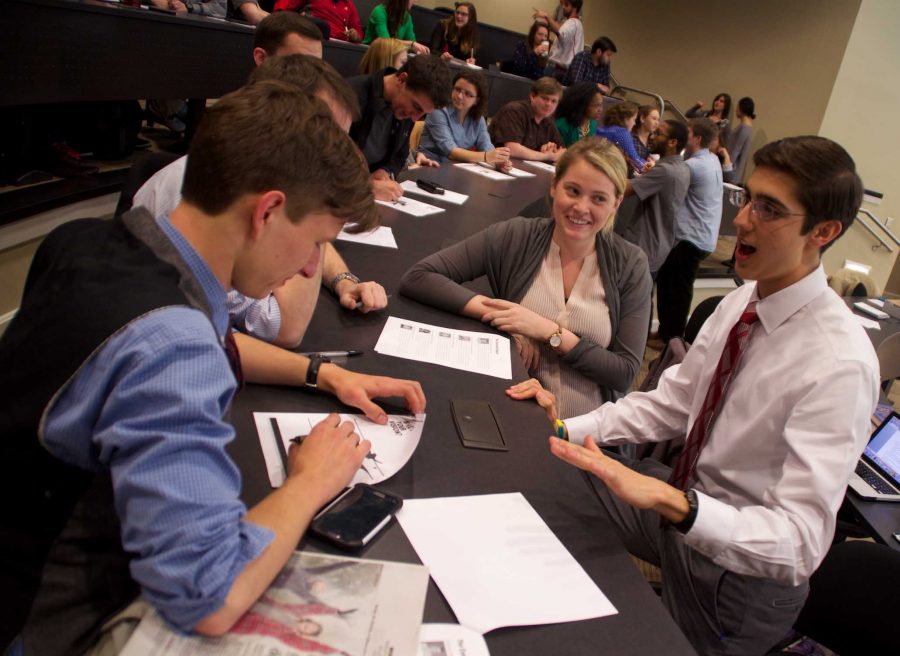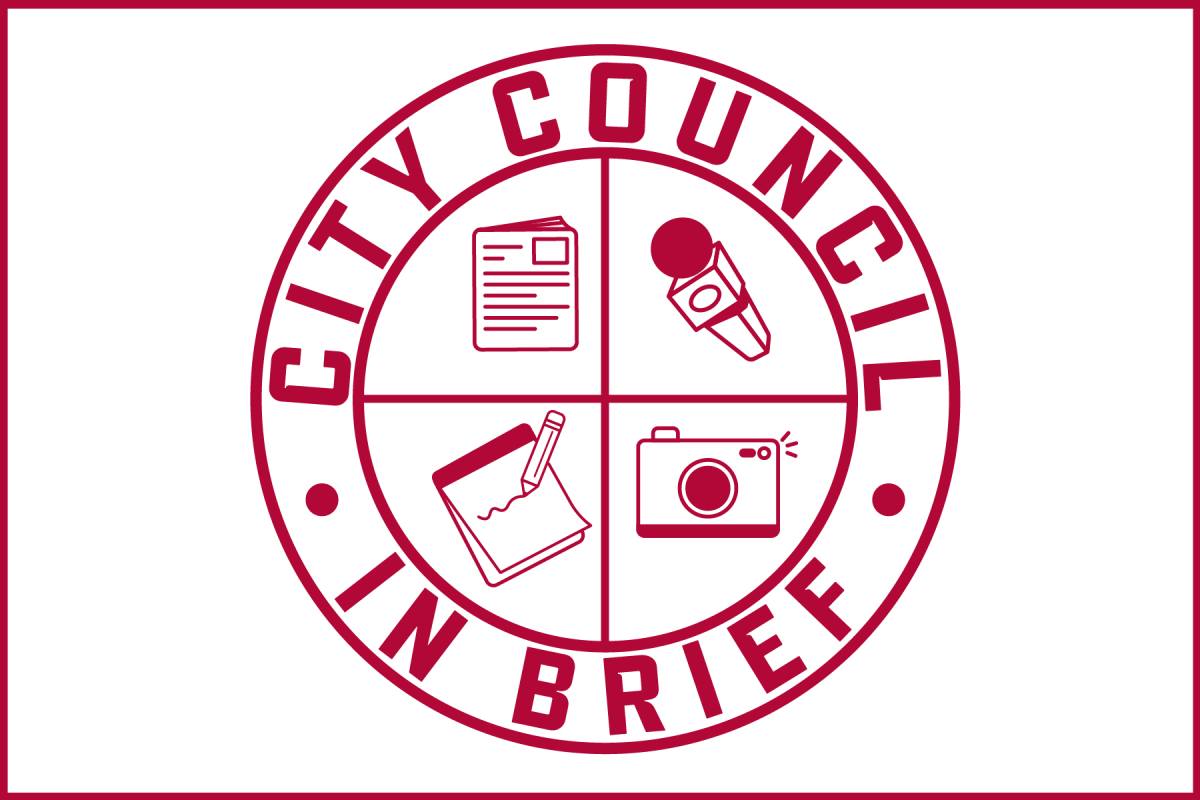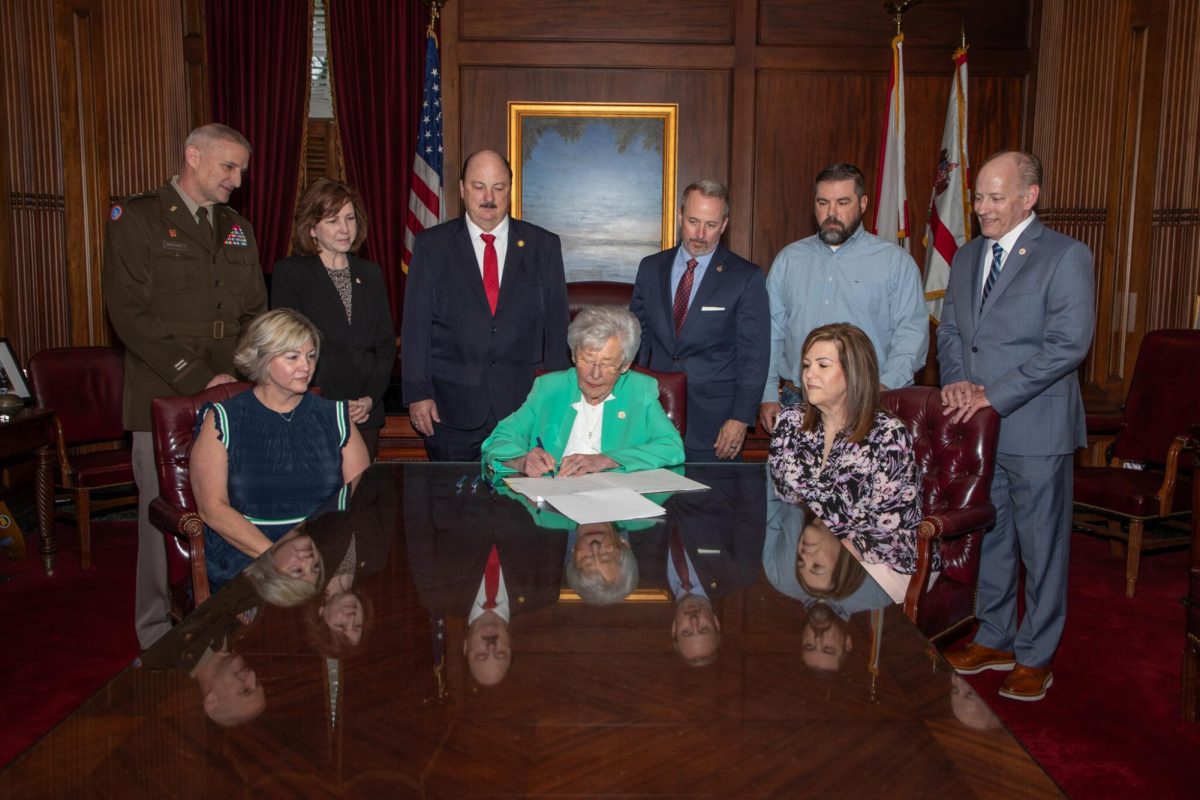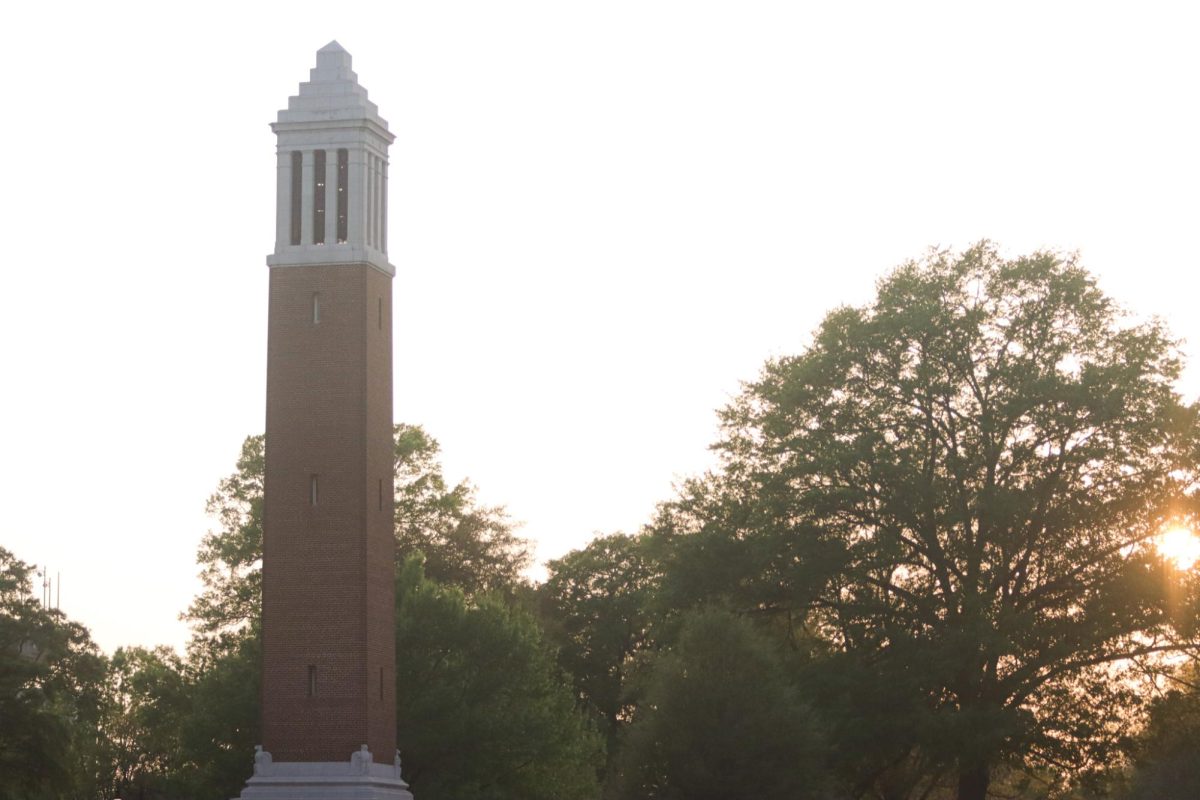In the wake of issues brought to light last fall, University of Alabama students and administrators joined together to create Students for Open Doors and Ethical Leadership, or SODEL.
“[SODEL] was born out of seeing students struggle to address the issues of last semester with everything that was going on,” Ross Green, executive director of SODEL, said. “I think students wanted to come together and build an organization that was constructive – that wanted to bring people who wouldn’t normally be in the room to discuss problems in a pragmatic and positive way.”
The group is designed to be an assembly for students from all areas of campus to discuss campus issues and propose solutions to organizations that can see the proposals through to fruition. Leaders said SODEL is independent from other similar organizations on campus and designed to create a safe environment for all students to address campus issues they find important.
On Monday night, SODEL held its first general assembly meeting to build the foundation of values on which they hope to operate as they grow and discuss issues such as communication and relationships between students and administrators, sexism, diversity within student organizations and free speech and grounds use on campus.
Andrew Parks, a junior majoring in political science and SODEL representative for Young Conservatives of America, described his reaction to the creation of SODEL as “overwhelmingly positive,” as seemed to be the consensus among the students in attendance.
“It was obvious from the participation that a lot of people are really excited about this type of thing,” Parks said.
Samaria Johnson, representing the Alabama Alliance for Sexual and Reproductive Justice, said she appreciated that this organization can exist to remind students they’re part of a greater university community.
SODEL is intended to be a representation of student groups and organizations on campus. Organizations are free to nominate a representative to be part of the assembly. Students who may not be involved in organizations but have strong opinions about campus issues can apply for an at-large seat in the assembly.
“We already know there are going to be disagreements,” Leigh Terry, public relations officer, said. “But that is why we wanted every viewpoint in the room so that we can constantly focus on, ‘What can we do?’ ‘What should we do?’ ‘What will we do?’ and do it.”
The executive board serves as a group of liaisons for their constituents. Vice chairs currently only represent the Honors College, the Interfraternity Council and National Panhellenic Council, the National PanHellenic Council and the at-large community. Members of the assembly who are a part of these respective organizations are represented by their vice chair at meetings held with faculty advisors. Parker Graham, vice chair of the Interfraternity Council and National Panhellenic Council, said the executive board does not take part in the voting of the assembly.
“SODEL is not designed to see our ideas and proposals through the fruition,” Graham said. “We just want to deliver them to the able resources on campus.”









